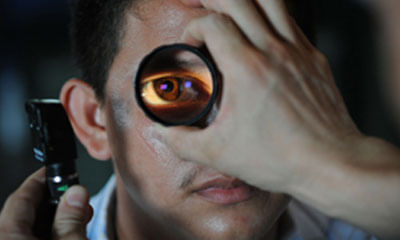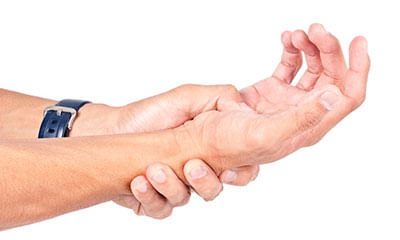Involuntary Head Movements
Please suggest. How to use my mind in 100% capacity, or as much as possible how can we increase concentraion power? ...
Ask Free Question
It will be necessary to first train the body to obey the commands of the mind. I want you to gain control of your muscular movements. The following exercise is especially good in assisting you to acquire perfect control of the muscles. Exercise 1: Sitting Still in a Chair Sit in a comfortable chair and see how still you can keep. This is not as easy as it seems. You will have to center your attention on sitting still. Watch and see that you are not making any involuntary muscular movements. By a little practice you will find you are able to sit still without a movement of the muscles for fifteen minutes. At first I advise sitting in a relaxed position for five minutes. After you are able to keep perfectly still, increase the time to ten minutes and then to fifteen. This is as long as it is necessary. But never strain yourself to keep still. You must be relaxed completely. You will find this habit of relaxing is very good. Exercise 2: Fix Gaze on Fingers Sit in a chair with your head up and your chin out, shoulders back. Raise your right arm until it is on the level with your shoulder, pointing to your right. Look around, with head only, and fix your gaze on your fingers, and keep the arm perfectly still for one minute. Do the same exercise with your left arm. When you are able to keep the arm perfectly steady, increase the time until you are able to do this five minutes with each arm. Turn the palm of the hand downward when it is outstretched, as this is the easiest position. If you will keep your eyes fixed on the tips of the fingers you will be able to tell if you are keeping your arm perfectly still. Exercise 3: Fix Eyes on Outstretched Glass concentration exercise fix eyes on outstretched glass illustration Fill a small glass full of water, and grasp it by the fingers; put the arm directly in front of you. Now fix the eyes upon the glass and try to keep the arm so steady that no movement will be noticeable. Do this first for one moment and then increase it to five. Do the exercise with first one arm and then the other. _____ The purpose of the above exercises is to gain control over the involuntary muscular movement, making your actions entirely voluntary. The following exercise [is designed] to bring your voluntary muscles under the control of the will, so that your mental forces may control your muscular movements. _____.
When I put my hand on my head I realise Muscles of my brain bleating loudly. And,I can't concentrate in any one thing. D ...
Ask Free Question
Hi Lybrate user, Sit in a comfortable chair and see how still you can keep. This is not as easy as it seems. You will have to center your attention on sitting still. Watch and see that you are not making any involuntary muscular movements. By a little practice you will find you are able to sit still without a movement of the muscles for fifteen minutes Fill a small glass full of water, and grasp it by the fingers; put the arm directly in front of you. Now fix the eyes upon the glass and try to keep the arm so steady that no movement will be noticeable Lie down and thoroughly relax your muscles. Concentrate on the beating of your heart. Do not pay any attention to anything else. Think how this great organ is pumping the blood to every part of the body; try to actually picture the blood leaving the great reservoir and going in one stream right down to the toes Sit in a chair with a high back in an upright position. Press one finger against the right nostril. Now take a long, deep breath, drawing the breath in gently as you count to ten; then expel the breath through the right nostril as you count to ten. Repeat this exercise with the opposite nostril Drink More Water.
My eyes are paining and also it used to vibrate under my eyes frequently. I do not know why it happens. Please suggest m ...
Ask Free Question
An eyelid twitch, or myokymia, is a repetitive, involuntary spasm of the eyelid muscles. A twitch usually occurs in the upper lid, but it can occur in both the upper and lower lids. For most people, these spasms are very mild and feel like a gentle tug on the eyelid. Others may experience a spasm strong enough to force both eyelids to close completely; this is a different condition called blepharospasm. Spasms typically occur every few seconds for a minute or two. Episodes of eyelid twitching are unpredictable. The twitch may occur off and on for several days. Then, you may not experience any twitching for weeks or even months. The twitches are painless and harmless, but they may bother you. Most spasms will resolve on their own without the need for treatment. In rare cases, eyelid spasms may be an early warning sign of a chronic movement disorder, especially if the spasms are accompanied by other facial twitches or uncontrollable movements. CAUSES What causes eyelid twitches? Eye irritation eyelid strain fatigue lack of sleep physical exertion medication side effects stress use of alcohol, tobacco, or caffeine If the spasms become chronic, you may have what’s known as “benign essential blepharospasm,” which is the name for chronic and uncontrollable winking or blinking. This condition typically affects both eyes. The exact cause of the condition is unknown, but the following may make spasms worse: blepharitis, or inflammation of the eyelid conjunctivitis, or pinkeye dry eyes environmental irritants, such as wind, bright lights, sun, or air pollution fatigue light sensitivity stress too much alcohol or caffeine smoking Benign essential blepharospasm is more common in women than in men. According to Genetics Home Reference, it affects approximately 50,000 Americans and usually develops in middle to late adulthood. The condition will likely worsen over time, and it may eventually cause blurry vision, increased sensitivity to light, and facial spasms. COMPLICATIONS Complications of eyelid twitches Very rarely, eyelid spasms are a symptom of a more serious brain or nerve disorder. When the eyelid twitches are a result of these more serious conditions, they are almost always accompanied by other symptoms. Brain and nerve disorders that may cause eyelid twitches include: Bell’s palsy (facial palsy), which is a condition that causes one side of your face to droop downward dystonia, which causes unexpected muscle spasms and the affected area’s body part to twist or contort cervical dystonia (spasmodic torticollis), which causes the neck to randomly spasm and the head to twist into uncomfortable positions multiple sclerosis (MS), which is a disease of the central nervous system that causes cognitive and movement problems, as well as fatigue Parkinson’s disease, which can cause trembling limbs, muscle stiffness, balance problems, and difficulty speaking Tourette’s syndrome, which is characterized by involuntary movement and verbal tics Undiagnosed corneal scratches can also cause eyelid twitches. If you think you have an eye injury, see your optometrist or ophthalmologist immediately. Corneal scratches can cause permanent eye damage.
I am 20 years my hands are shaking a lot I am scared whether I am having a disease and all the people with whom I go wil ...
Ask Free Question
It is the most common of all involuntary movements and can affect the hands, arms, head, face, voice, trunk, and legs. Most tremors occur in the hands. In some people, tremor is a symptom of a neurological disorder or appears as a side effect of certain drugs.
My mother has bipolar disorder since last year Her medication going on are [diva of 500 (1 in mrng; depran-h (1 in mrng ...
Ask Free Question
Dear lybrate-user, It is better to evaluate her for parkinson or other conditions causing these involuntary movements. It may be due to Divaa od also. In that case the psychiatrist will change her mood stabiliser. Usually the psychiatrist himself may be able to assess her since psychiatrists are trained in neurology and they know Divaa od's side effects. Rarely she/he may take a neurologist opinion.
I suspect I'm suffering from histaminosis. My symptoms are Stomach bloating, irritable bowels, low blood pressure, nasal ...
Ask Free Question
Hello, Your troubles lie in your bowel being influenced with stress and irregular life style of yours. Tk, plenty of water to eliminate toxins, hydrating your body restoring metabolism to absorb neutrients preventing constipation. •Go for meditation to reduce stress and nourishing cells & tissues including brain to calm your nerve nourishing your entire body. •Your diet be normal, non-irritant in small intervals avoiding gastric disorder. •Avoid, junk food, alcohol, caffiene, nicotine, piza, burger Tk, homoeopathic medicine:@ Acid sulph 30-6 pills, thrice. @ Ignatia 30-6 pills, thrice. Tk, care.
I am suffering from premature ejaculation and a night fall. I want to know that is it curable? If yes, then how. ...
Ask Free Question
Hello- Yes it is completely curable condition. Weak nerves, congested prostate gland, and inability to control emotions are primary causes of night fall and premature ejaculation. It can result in low libido, lethargy, lesser sensation in genital region, and impotency. Start ayurvedic treatment. Herbal medicines improve secretion of testosterone hormone and energize nerve of the male genital region to stop easy flow of semen. Active and energetic nerve brings much better control over ejaculation and male can prevent the discharge of semen during sleep or during sex. Medicines also strengthen weak genital tissue and repairs damaged ones by increasing its blood supply to make the male genital region stronger and active.
I am suffering from a condition which is unexplainable completely. I am fit and fine physically but I am having a mental ...
Ask Free Question
It is possible to explore the problem further. The next time you have one of these episodes, please ask your family member to immediately do an EEG. It is possible that this could be a myriad of other things, more specifically Epilepsy.
I am diagnosed with Cervical Dystonia. My head involuntarily turns to left. I have had two rounds of botox of 200 units ...
Ask Free Question
If it is not causing any discomfort, then no treatment is necessary. It could be your style adopted in childhood and rooted in your psyche. Use this to create your unique identity. It's not a handicap or abnormality.
I am a student. Before two three years whatever I was trying to memorize that was easy for me, but now a days I became a ...
Ask Free Question
Hi lybrate-user, you need few lifestyle changes, do the following and include in your schedule: exercise regularly. Targeted exercise goes a long way toward freeing your body of stress hormones and increasing your endorphin levels - responsible for feelings of happiness. Carve out time during your busy day to exercise to both keep your body healthy and as a natural outlet for your stress. You should notice the difference get enough sleep. Give your body the sleep it wants, and your stress levels will take a nosedive. Sleep is a mechanism by which your body recuperates and restores its energy reserves. If you're not getting enough sleep, your body will use stress to keep you active and alert in the absence of stored energy. Most adults need at least 7-8 hours of sleep per night. Young children and older adults need more, about 9-10 hours of sleep per night. Eat properly. Your body needs to be healthy, strong, happy and properly fueled to help you tackle stress. Like it or not, stress is a bodily reaction to anything that disturbs its natural state, meaning that your body can have a profound effect on producing and relieving stress. Water has been shown to relieve stress. That's because a dehydrated body creates cortisol, a stress hormone. An under-hydrated body creates stress to motivate the owner of the body to properly care for him/herself. Start decreasing caffeine and alcohol intake. In some cases, alcohol intake increases stress response in humans while being linked to substance dependency, a stressful condition itself. Caffeine is also responsible for raising stress levels, especially at work, so try to stick to water as a general rule. Eat a healthy breakfast and healthy snacks during the day. It is better to eat several smaller meals throughout the day than to consume three large meals. For a healthy stress-free diet, consume more complex carbohydrates such as whole-grain breads and pasta, foods high in vitamin a such as oranges, foods high in magnesium like spinach, soybeans or salmon, and black and green tea, which contain antioxidants. Practice yoga and meditation. Although you could technically consider yoga your daily exercise, practicing the deep stretches and slow body movements will help you to clear your mind. Meditating - clearing your mind - while practicing gentle yoga will give double the relaxation effect to ease your stress. Use guided imagery to imagine a place that makes you feel at peace. Imagine somewhere that you feel happy; focus on the details to fully remove your mind from the present. Do yoga alone or in a group setting to help you learn new poses. As you advance in your yoga, you will be able to form complex stretches that force you to focus and take your mind off your stress. Practice deep relaxation by doing progressive muscle relaxation. This is when you work through your body by tensing your muscles, holding the tension for ten seconds, and then releasing it. This will soften and relieve all the muscles in your body. Do the following exercise for improving concentration: exercise 1: sitting still in a chair sit in a comfortable chair and see how still you can keep. This is not as easy as it seems. You will have to center your attention on sitting still. Watch and see that you are not making any involuntary muscular movements. By a little practice you will find you are able to sit still without a movement of the muscles for fifteen minutes. At first I advise sitting in a relaxed position for five minutes. After you are able to keep perfectly still, increase the time to ten minutes and then to fifteen. This is as long as it is necessary. But never strain yourself to keep still. You must be relaxed completely. You will find this habit of relaxing is very good. Exercise 2: fix gaze on fingers sit in a chair with your head up and your chin out, shoulders back. Raise your right arm until it is on the level with your shoulder, pointing to your right. Look around, with head only, and fix your gaze on your fingers, and keep the arm perfectly still for one minute. Do the same exercise with your left arm. When you are able to keep the arm perfectly steady, increase the time until you are able to do this five minutes with each arm. Turn the palm of the hand downward when it is outstretched, as this is the easiest position. If you will keep your eyes fixed on the tips of the fingers you will be able to tell if you are keeping your arm perfectly still. Exercise 3: watch concentration sit in a chair and place a clock with a second hand on the table. Follow the second hand with your eyes as it goes around. Keep this up for five minutes, thinking of nothing else but the second hand, this is a very good exercise when you only have a few minutes to spare, if you are able to keep every other thought in the stream of consciousness subordinate to it. As there is little that is particularly interesting about the second hand, it is hard to do this, but in the extra effort of will power required to make it successful lies its value. Always try to keep as still as possible during these exercises. All the best.









